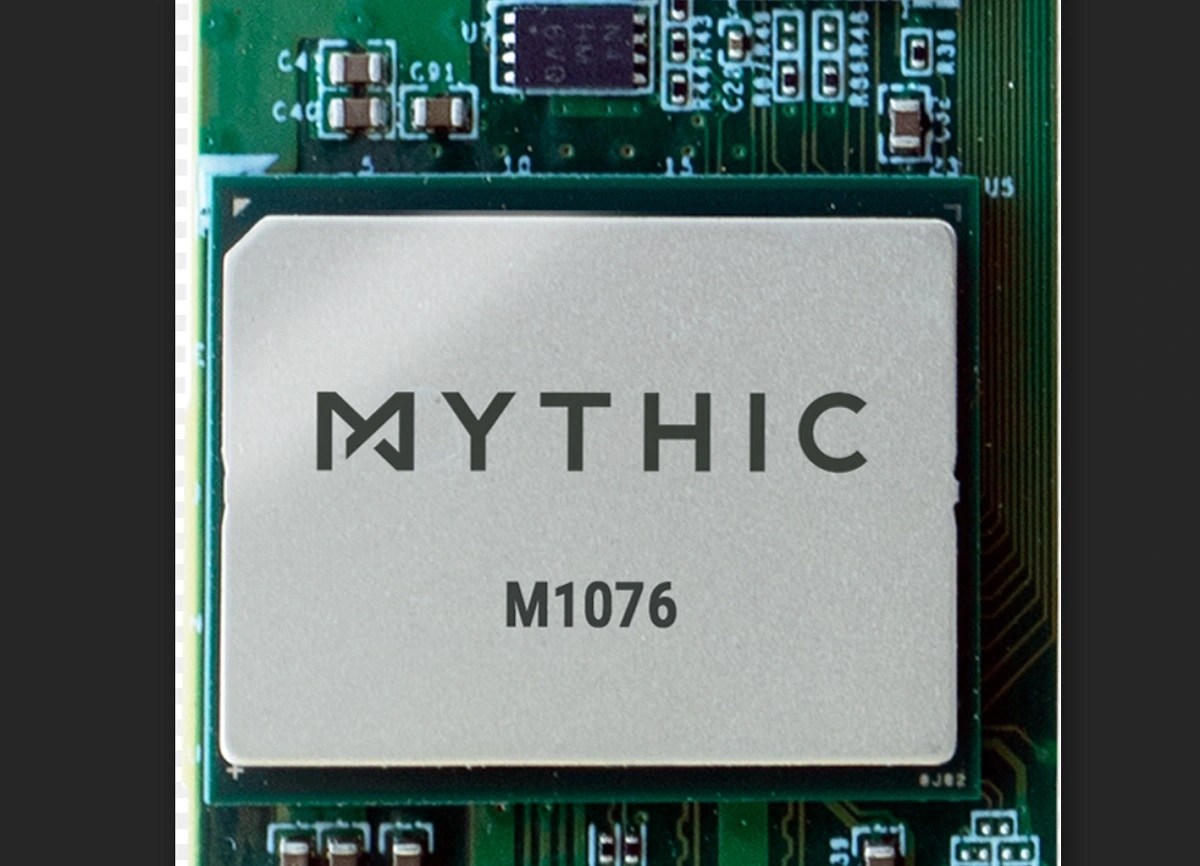Mythic, an AI chip startup that last November reportedly ran out of capital, rose from the ashes today with an unexpected injection of fresh funds.
Mythic this morning announced that it closed a $13 million financing round led by existing investors Atreides Management, DCVC and Lux Capital alongside new investors Catapult Ventures and Hermann Hauser Investment. While the tranche is a fraction of the startup’s previous raise ($70 million), Mythic claims that the tranche will enable it to bring its “next-generation” product — an improved energy-efficient AI processor — to market.
“While economic conditions are challenging right now, this new funding will help Mythic focus on its technology offering, go-to-market strategy and customer acquisition,” Dave Fick, Mythic’s newly appointed CEO, told TechCrunch in an email interview.
Co-founded by Fick and Mike Henry at the University of Michigan under the name Isocline, Mythic developed chip tech that stores analog values on flash transistors. While digital processors “pause” to swap data in and out of dedicated memory, Mythic’s hardware can perform calculations in parallel without stopping, leading to performance and efficiency gains, particularly for AI applications — or so the company claims, at least.
Mythic initially worked on projects for the U.S. Air Force through its Small Business Innovation Research (SBIR) program, focusing on computer vision for high-altitude drones and GPS signal acquisition. Once the contracts wrapped up, the startup decided to pursue the venture capital route, raising over $170 million across multiple rounds from investors, including Hewlett Packard Enterprise and BlackRock.
With its first commercial chip, M1076, Mythic doubled down on computer vision use cases, building a system that can help detect small objects from faraway distances in fewer than 33 milliseconds. It’s perhaps these capabilities that attracted Mythic’s largest customer to date, Lockheed Martin, whose corporate arm, Lockheed Martin Ventures, became a major investor in the startup.
So what went wrong? Well, Mythic was competing in a very crowded field. Dozens of startups were — and are — developing chips to run AI efficiently at the edge, including SiMa.ai, Axelera, Flex Logix, NeuReality, EnCharge, Hailo and Kneron. But funding is drying up. According to The Register, global VC equity for semiconductor startups in 2022 declined 46% to $7.8 billion, reflecting increased scrutiny for the capital-intensive firms.

Mythic wasn’t the only one impacted by the bust. Last year, AI chipmaker Graphcore, which reportedly had its valuation slashed by $1 billion after a deal with Microsoft fell through, said that it was planning job cuts due to the “extremely challenging” macroeconomic environment. Meanwhile, Habana Labs, the Intel-owned AI chip company, laid off an estimated 10% of its workforce.
To claw back to stability, Fick — who stepped up as Mythic’s CEO from CTO after Henry, who was CEO, left to pursue other interests — prioritized efficiency. For example, Mythic now leverages more development partners and off-the-shelf components than it did previously, cutting costs and (with luck) reducing the time to market.
Fick asserts that the restructuring has the added benefit of making Mythic’s R&D “more nimble” as it prepares to release its next-gen chip, the M2000.
“Given the new macroeconomic environment, we expect many startups will want to take a similar approach, especially for systems companies which need to deliver many components beyond their core technology,” Fick added. “But an advantage of Mythic’s analog computing approach is that we can use more mature process nodes. These have more supply chain availability than bleeding-edge nodes and are also much more cost-effective.”
Beyond cost cutting, Mythic revamped its go-to-market strategy, returning to its roots with a “renewed focus” on defense (and to a lesser extent public safety, industry and consumer verticals), according to Fick. He wouldn’t elaborate. But presumably, that means chasing after more customers with government contracts, like Lockheed.
“Cloud computing is often not available on the battlefield, creating a strict edge computing environment. Advanced computer vision is being applied in many places, including large and small drones, land-based autonomous systems, radar, augmented reality headsets and more,” Fick said. “As the M2000 reduces the size, weight, power, and cost to deploy high-performance computer vision, these technologies can be applied in more applications.”
Critics might deride Mythic’s pivot to defense as opportunistic, but there’s no denying that there’s a wellspring of capital there. As PitchBook noted in a recent report, after years of shunning investments in military and security-related tech startups, VCs have begun raising their profile in the sector as the U.S. attempts to gain an upper hand against threats from adversaries, including China and Russia. In 2022, there was $7 billion invested in VC-backed U.S. aerospace and defense companies through October 13, putting the sector on track to surpass 2021’s record deal value of $7.6 billion.
As Matt Ocko, managing partner at DCVC, put it in rather apocalyptic language: “Mythic’s processor delivers data center GPU performance into the size, power, and cost of practical long-run-time edge systems that can defend America’s schools and public places from violence and terror, and our allied nations’ troops on the battlefield. Mythic’s technology will close the gap between what AI researchers publish and what systems makers actually deploy, and delivers revolutionary capabilities for homeland defense and national security.”
Parsing the hype, investors are enthusiastic about Mythic’s new defense-forward direction — at least for now. Time will tell whether it was the right one.































Comment